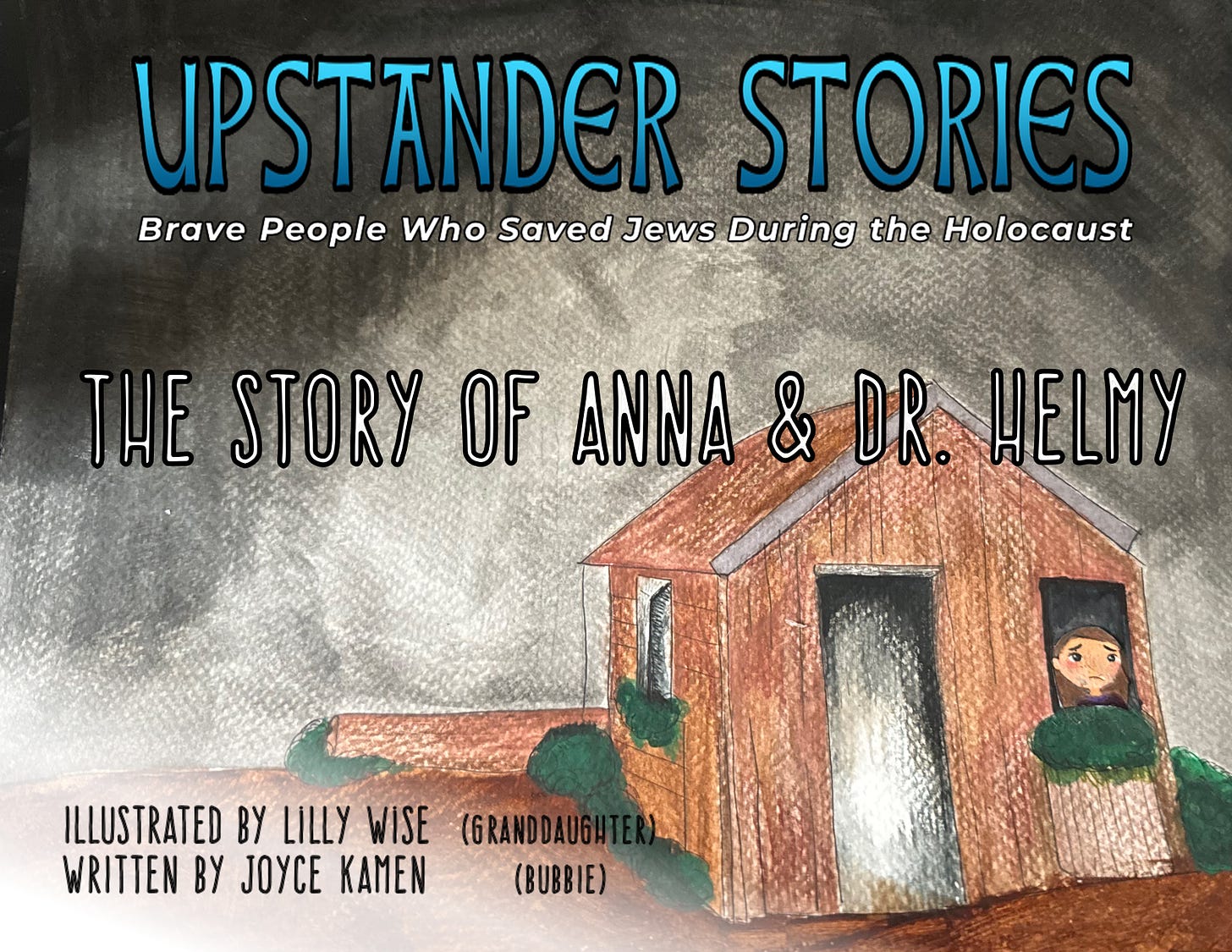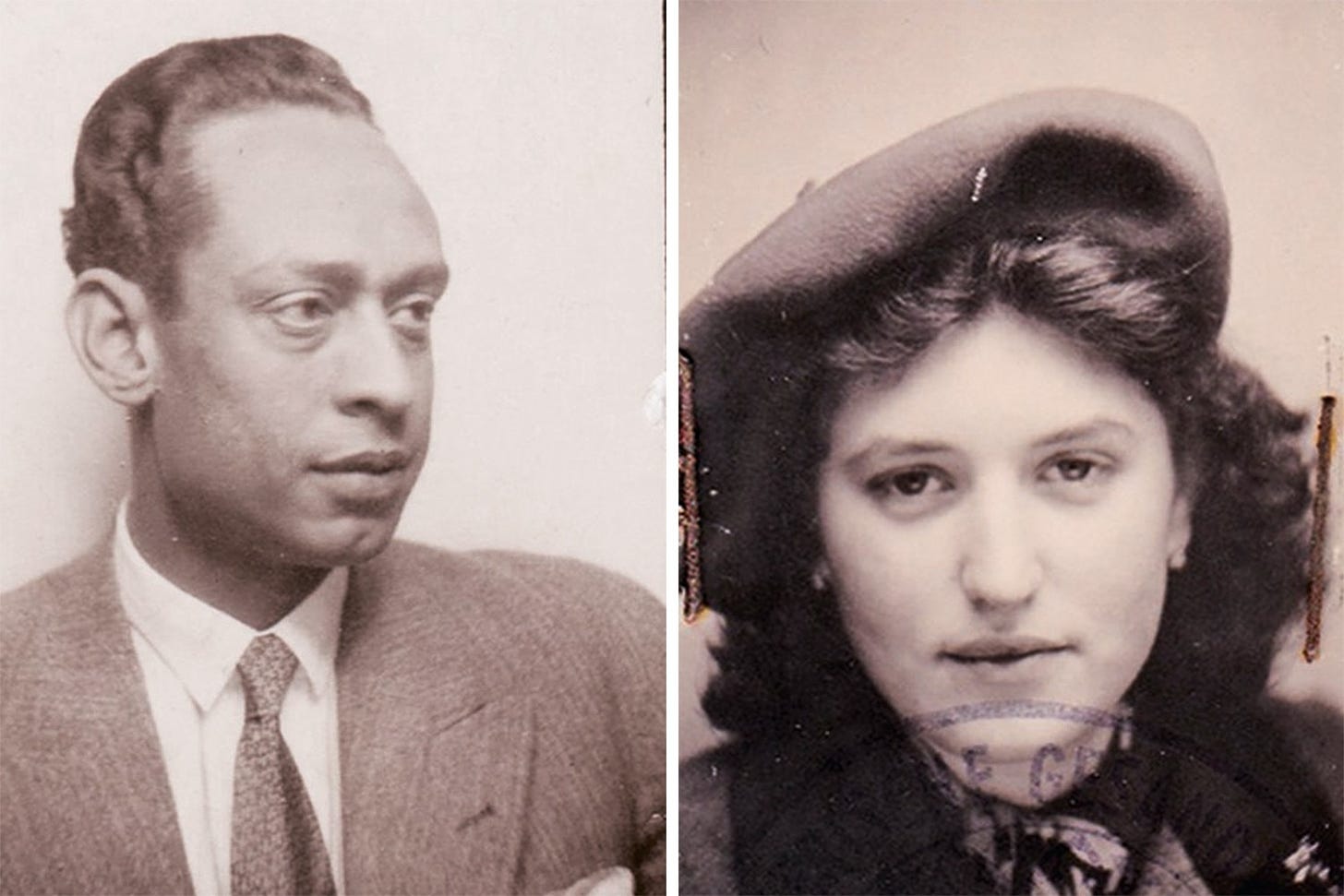For several years now, I haven’t known quite what to call them. You know, the courageous people who are faithfully present —stepping forward selflessly to help others in trouble—even when their own safety or security cannot be assured.
The late Mr. Rogers, of the extraordinary “Mister Rogers’ Neighborhood” that aired on PBS from 1968-2001, used to tell his audience of pre-schoolers to “look for the helpers” whenever they needed assistance. It was an empowering message I was happy to have my own pre-schoolers receive from him. “There are always helpers,” he told them.
That felt so right—back then.
During those Mr. Rogers years, I too thought of the brave, noble, altruistic people in the world as “the helpers.” But with each passing year, as the world became smaller, palpably meaner and infinitely more frightening (even for adults) I began to feel like “the helpers” was not a powerful enough descriptor for what many were doing to earn that honorific.
-Intervening in violent, racially motivated attacks on city streets.
-Storming a cockpit along with other passengers on a plane to overtake murderous terrorists who’ve commandeered the controls.
-Becoming a whistleblower to stop drug or human sex trafficking knowing that you will be need to be placed in a witness protection program for the rest of your life.
“The helpers.” While apt, it no longer seemed to be a suitably formidable designation for those willing to sacrifice everything to alleviate the danger to — or the suffering of — others.
There had to be a word or phrase that could more meaningfully convey the depth of humanity, self-sacrifice and sense of right that these heroes innately possessed…
🩸🩸🩸
The first time I saw the word “Upstander” it was printed on a brochure I received in the mail several years ago. I didn’t know what it meant. In fact, I actually thought it was a typo. But then as I read through the piece — which was sent by our community’s local Holocaust and Humanity Center—its meaning became crystal clear.
It was a word…an idea…an inspiration…an aspiration for our times. For all times.
The brochure was promoting a celebration of “Upstanders” within the community—people who risked their lives during the Holocaust to save Jews. However, as I read on, I learned that the term “Upstander” was more broadly defined as follows:
An Upstander is the opposite of a bystander. Bystanders see bad things happening to other people and do nothing to help. Upstanders see these same things and step forward to help.
There it was. That was it. “Upstander.”
Up—Ascending to a higher moral and ethical plane.
Stander—Rising without hesitation or self-concern in the righteous pursuit of justice and humanity.
Upstander.
Since embracing the humanitarian concept of Upstander-ship those many years ago, I learned that anyone, anywhere and at any time can choose to be an Upstander. I have since seen and celebrated many who have risen to earn this lofty title…past and present.
-Doctors who, during the pandemic, risked their livelihoods —and their families’ financial security—by bucking the “official medical guidance” they believed was harming patients. Instead, they provided their patients with the treatments that medical science showed would save their lives. Many were censored, lost their jobs — and their medical licenses. But the overwhelming majority of their grateful patients survived.
-Elected officials who stood counter to the tenets of their own parties to champion the policies and positions that they deemed more ethical and would better serve and uplift the communities they represented.
-A pastor who faced criminal charges last winter after allowing several homeless people to shelter from extreme cold in his church overnight. City officials claimed he acted in violation of “city codes”.
-First responders who ran into burning skyscrapers (the result of jetliners crashing into them) to save others who were trapped—knowing they themselves would likely never re-emerge alive.
Laudable Upstanders all.
🩸🩸🩸
Recently, my granddaughter Lilly (an artist/illustrator) and I released the first book of a new series we’ve called, “Upstander Stories.” This series focuses on staggeringly brave people who risked their lives to save Jews during the Holocaust.
The first Upstander story we focused on was that of Dr. Mohammed Helmy, an Arab-Muslim physician from Egypt. Dr. Helmy risked his life everyday for two years to hide and protect Anna, a young Jewish girl, from deportation to a concentration camp in Nazi-occupied Berlin during WWII. Had Dr. Helmy been discovered by the Nazis to be hiding Anna, he would have been murdered for doing so.
And had Anna been deported, she would have arrived at Auschwitz, a notorious death camp. It is nearly 100% certain that she too would not have survived.
Anna was my husband’s biological mother.
This is how this act of Upstander-ship rewrote history:
Because Dr. Helmy was an Upstander, Anna survived. Dr. Fred Wagshul, my husband, was Anna’s firstborn son who went on to become a physician himself…saving thousands of lives during his 38-year career as a pulmonologist. So not only did Dr. Helmy save Anna, his act of overwhelming courage meant that over 80 years later, his heroism would still be saving lives because it meant that Fred could be born — and grow to save others.
In 2013, Dr. Helmy posthumously received Israel’s highest civilian honor when he was named as one of the “Righteous Among the Nations” for saving Anna— and for arranging for her parents and grandparents to be hidden by another honoree, Frieda Szturmann. He remains the only Arab-Muslim ever to receive this distinction.
Telling Upstander stories is vital if we are to inspire new generations of Upstanders…and begin to repair the world in its many broken places.
If you have an Upstander story to share, please email info@upstanderstories.org and tell us about it. And let us know if we can share your story with others on our website. It would mean so much to be able to do so.
Being an Upstander is the most laudable — and most critical — of all humanitarian values. From confronting bullies on a school playground or donating money to charities to jumping into the ocean after seeing someone struggling to get to shore—the examples set by Upstanders inspire thousands to make this world a more caring, more loving, more humane place. And the best thing about it? We can all start right now.
I’m in. You too?






Thank you for the uplifting article and explaining what the term upstander means. Back when all the Covid chaos started and the conflicting information we were receiving I had come down with Covid and was struggling to recover from the coughing and shortness of breath and overuse of my inhaler . Months went by and I began to search for answers on my own . I came across discussions on YouTube with Doctors Paul Marik, Dr Pierre Kory and Dr Moybeen Sayeed who were talking about how they were treating their patients who had Covid and how there was success using hydroxychloroquine and ivermectin . I can certainly attest to the courage , the integrity , the kindness and the dedication Dr Wagshul has for his patients because after struggling to breathe normally and return to normal , I became a patient of Dr Wagshul’s . He prescribed ivermectin along with an antibiotic and after almost eight long months fighting Covid I was back to normal because he had the courage to do what was best for his patient (me) against what the medical establishment, Fauci and the media were saying. This has caused me to learn that I must be my own advocate for my health and my family’s health and well being, to not blindly accept what the narrative is from the officials and agencies like the CDC , FDA and government leaders are saying but to do my own research. By doing that I was able to find the correct treatment from a true “ upstander” in Dr Wagshul.
Thank you for highlighting the contrast between "upstanders" and "bystanders". I've occasionally been the former, and during those times, really resented the latter. After one occasion, where I was confronting someone on a train who was making life miserable for others, the offender eventually left the train, and a number of bystanders then spoke up, saying they supported me. I snapped back, "Where were you a few minutes back, where that support would have vastly outnumbered the offender?"
There's an old email series called "Heroic Stories" (https://heroicstories.org) filled with stories by those who wanted to recognize the efforts of others in their lives.
Some people are a little off-put by the label "heroic", because they think they have to do something extraordinary in the eyes of others. But it's most often the quiet acts of service and dedication of time that are so important to the one, in their time of need or desperation. Too many are afraid to ask for help, but it's the heroic ability (for those who are able) to see the need in others, and step forward without seeking recognition or reward, and being an answer to a prayer.
Thank you again for your wonderful posting!